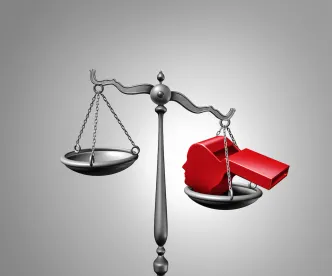It should come as no surprise that the U.S. Securities and Exchange Commission (SEC) has initiated several investigations into companies attempting to illegally profit from the hardships triggered by the coronavirus pandemic. The Dodd-Frank Act’s qui tam whistleblower provisions created a revolution in the detection and successful prosecution of securities frauds. This new wave of whistleblowers incentivized by successful reward laws will play a critical role in combatting coronavirus fraudsters.
As of April 22, 2020, the SEC has suspended 23 companies from trading on Wall Street due to suspected coronavirus frauds. Most of the suspended companies sell “microcap” stocks to investors at low prices. But the full scope of potential securities fraud implicated by COVID-19 is far larger. As the Commission explained when the announced the suspensions:
“Fraudsters often use the latest news developments to lure investors into scam.” The coronavirus-related scams concern the illegal “claim[s] that the products or services of publicly-traded [sic] companies can prevent, detect, or cure coronavirus,” and that the stock of these companies will dramatically increase in value as a result.
Whistleblowing is now the most effective method to detect corporate crime, including coronavirus frauds. Every Chairman of the SEC since the enactment of the Dodd-Frank Act in 2010 has acknowledged the critical role whistleblowers play in protecting the public from outrageous and dangerous fraud schemes. As explained by former SEC Chair Mary Jo White: The SEC “whistleblower program . . . has rapidly become a tremendously effective force-multiplier, generating high-quality tips, and in some cases, virtual blueprints laying out an entire enterprise, directing us to the heart of the alleged fraud.”
Former Chairman White’s views have been echoed by the current SEC Chair Jay Clayton, who praised the Dodd-Frank Act whistleblower reward law as an “invaluable component” to the Commission’s “enforcement efforts.” The current Chief of the SEC’s Office of the Whistleblower, Jane Norberg, in an April 20, 2020, statement explained the importance of paying awards to whistleblowers: “These awards demonstrate the valuable contributions whistleblowers make to the protection of markets and investors and we encourage people to come forward with information about possible securities law violations.” Since 2011, the SEC has paid whistleblowers over $400 million in rewards.
These public statements all acknowledge the fact that the Dodd-Frank Act has enabled the SEC to obtain insider information essential in detecting, preventing, and prosecuting securities frauds. They are consistent with the strong support shown by prosecutors in other areas for which the United States pays rewards. These statements confirm that the information provided by insiders will trigger numerous important coronavirus fraud cases. The whistleblowers will have the admissible evidence necessary to obtain successful prosecutions.
Given the trillions of dollars in federal spending, the sharp decline in some stock values, and the propensity of some companies to mislead investors and the public regarding coronavirus-related products or the impact of the pandemic on their businesses, COVID-19-related frauds will become a central focus of the SEC. Already the SEC is actively warning investors about coronavirus frauds and seeking information from whistleblowers. They have created a new webpage entitled “Look Out For Coronavirus Investment Scams,” with many links to COVID-19-related sites. They have also published a COVID-19 “response” page, and a web page dedicated to the securities violations and requirements concerning COVID-19.
The SEC also warned publicly traded companies to ensure their statements to investors, and their filings with the SEC, are complete. Corporate disclosures must accurately “reflect” the “state of affairs” regarding a “company’s COVID-19 response.” The Chairman of the SEC and Director of the Commission’s “Corporate Finance” division issued a joint statement, “The Importance of Disclosure for our Markets and our Fight Against Coronavirus,” explaining the obligation of publicly traded companies to accurately report a company’s “state of affairs” in the wake of the coronavirus pandemic. Corporate disclosures must explain to investors “where the company stands,” both “operationally and financially,” and “how the company’s COVID-19 response” addresses “efforts to protect the health and well-being of its workforce and its customers.” These disclosures should be of “high quality” and include “detailed information regarding future operating conditions.”
Additionally, the SEC has identified “pump and dump” schemes as a tool fraudsters are using to manipulate the market and defraud investors in the face of the coronavirus pandemic. The Commission explained that “in a ‘pump-and-dump’ scheme, promoters ‘pump’ up, or increase, the stock price of a company by spreading positive, but often false, rumors. These rumors cause many investors to purchase the stock. Then the promoters or others working with them quickly ‘dump’ their shares before the hype ends. Typically, after the promoters profit from their sales, the stock price drops, and the remaining investors lose most of their money.”
The SEC’s aggressive action issuing temporary suspension orders against 23 corporations suspected of engaging in coronavirus-related securities frauds is a strong indication that COVID-19-related violations will be aggressively investigated and prosecuted by the SEC. The suspended companies include:
Predictive Technology Group, Inc. (4/21/2020)
Spectrum DNA, Inc. (4/21/2020)
SCWorx Corp. (4/21/2020)
PreCheck Health Services, Inc. (4/16/2020)
Bravatek Solutions, Inc. (4/15/2020)
BioXyTran, Inc. (4/15/2020)
Signpath Pharma, Inc. (4/15/2020)
Applied BioSciences Corp. (4/13/2020)
Arrayit Corporation (4/13/2020)
Solei Systems, Inc. (4/10/2020)
Roadman Investments Corp. (4/10/2020)
Parallax Health Sciences, Inc. (4/10/2020)
Turbo Global Partners, Inc. (4/9/2020)
BioELife Corp. f/k/a U.S. Lithium Corp. (4/8/2020)
Key Capital Corporation (4/7/2020)
Prestige Capital Corp. (4/7/2020)
Wellness Matrix Group, Inc. (4/7/2020)
Sandy Steele Unlimited Inc. (4/3/2020)
No Borders, Inc. (4/3/2020)
Praxsyn Corporation (3/25/2020)
Zoom Technologies, Inc. (3/25/2020)
Eastgate Biotech Corp. (2/24/2020)
Aethlon Medical, Inc. (2/7/2020)
Under the Dodd-Frank Act’s whistleblower provisions, employees at any of these companies can receive financial rewards if their disclosures trigger ongoing enforcement actions or if they provide additional evidence to the SEC in support of the enforcement actions.
The SEC is not the only federal agency that is actively investigating and prosecuting COVID-19-related frauds. The Commodity Futures Trading Commission (“CFTC”), administers a robust whistleblower rewards program and has also issued specific warnings to investors and companies related to the coronavirus. These warnings include a “Customer Advisory” warning of “market volatility related to COVID-19,” and “fee frauds” targeting employees laid off due to the coronavirus. Although the CFTC whistleblower program is less known than the SEC’s reward program, the CFTC has paid over $100 million in rewards based on violations of the Commodity Exchange Act since 2014.
Both the SEC and CFTC whistleblower programs were established as part of the Dodd-Frank Act. They are nearly identical in scope and purpose and share common features, such as anonymous and confidential reporting. Under both programs, whistleblowers whose original information triggers an investigation, or contributes to an ongoing investigation, are entitled to a reward of between 10-30% of the sanctions obtained by the United States. The SEC’s Office of the whistleblower explained how the reward programs work: “The SEC has awarded approximately $430 million. . . All payments are . . . financed entirely through monetary sanctions paid to the SEC by securities law violators. No money has been taken or withheld from harmed investors . . . Whistleblowers may be eligible for an award when they voluntarily provide the SEC with original, timely, and credible information that leads to a successful enforcement action. Whistleblower awards can range from 10 percent to 30 percent of the money collected when the monetary sanctions exceed $1 million.”
In addition to the Dodd-Frank Act’s two major whistleblower reward programs, many other laws can also be used to report coronavirus frauds, qualify for a reward, or protect one’s job if filing complaints about health and safety problems caused by COVID-19 contamination. The IRS whistleblower program and federal and state False Claims Acts offer powerful tools to help whistleblowers safely report COVID-19 fraud to the Internal Revenue Service or Department of Justice. The False Claims Act is recognized as the most effective qui tam reward law in the United States. It covers all federal spending and procurements. Anyone working under a federal contract, selling products to the government, or obtaining medical reimbursements for healthcare provided to veterans are covered under the False Claims Act. Most significantly, all federal spending under the Medicare and Medicaid programs are covered under the False Claims Act.
Most nursing homes receive federal payments or reimbursements under Medicare or Medicaid. Given the widespread frauds that have occurred at these agencies, the Justice Department established a special task force dedicated to reviewing patient care and fraud cases in nursing homes. Furthermore, in direct response to the coronavirus pandemic, the Justice Department is prioritizing False Claims Act cases for review and, as of April 2020, has filed several federal fraud cases related directly to the coronavirus pandemic.
The importance of using the False Claims Act in fighting frauds was acknowledged by one of the nation’s leading False Claims Act defense firms. On their website the notoriously anti-qui tam whistleblower law firm, Gibson, Dunn and Crutcher, described the False Claims Act as follows: “FCA is an extremely powerful tool available to both the Department of Justice (DOJ) and purported whistleblowers seeking to file lawsuits on the government’s behalf and obtain a percentage of what they recover. With its treble damages and per-claim forfeiture provisions, the FCA is a potent weapon. Moreover, the consequences of being found liable in an FCA case can be catastrophic, resulting in suspension or debarment from government contracts or exclusion from participation in government programs.”
The IRS whistleblower program, which not only covers tax evasion, but also covers crimes investigated by the IRS criminal division, has also paid out hundreds of millions in awards. IRS whistleblowers will also play a vital role in policing coronavirus fraud. Like the SEC and CFTC, the IRS has also issued specific warnings related to coronavirus frauds, and the Treasury Department has a special website specifically for reporting COVID-19-related frauds. The IRS also has very strong procedures protecting the confidentiality of whistleblowers.
Given the trillions of dollars in federal spending being directed from the Treasury Department and the potential for numerous companies to manipulate their tax liability based on losses from the pandemic, the IRS whistleblower program is another avenue open to whistleblowers that should be utilized. Both the IRS and False Claims Act whistleblower laws mandate a higher percentage recovery for whistleblowers. Under these laws, whistleblowers are entitled to a minimum reward of 15%, as opposed to the lower reward amount in the Dodd-Frank Act (10%). Whistleblowers can also file claims alleging multiple violations under each of the reward programs. It is not uncommon for one company to violate tax laws, securities laws, and the False Claims Act when they are engaging in a major fraud. The IRS law also have a modernized anti-retaliation provision.
The coronavirus has created an opportunity for fraudsters to exploit the hardships of the pandemic and profit from their crimes. The SEC has broken the ice on enforcement, and suspended 23 companies for engaging in frauds, many of which would put people’s lives in danger by misstating the potential medical benefits from untested and unproven product. The SEC, along with its sister law enforcement agencies, have recognized the indispensable role whistleblowers play in detecting frauds. It is incumbent that every employee in a position to witness coronavirus frauds understand their rights to anonymously or confidentiality report these crimes, protect their jobs, save lives, and obtain compensation for taking the risk of becoming a whistleblower.




 />i
/>i

